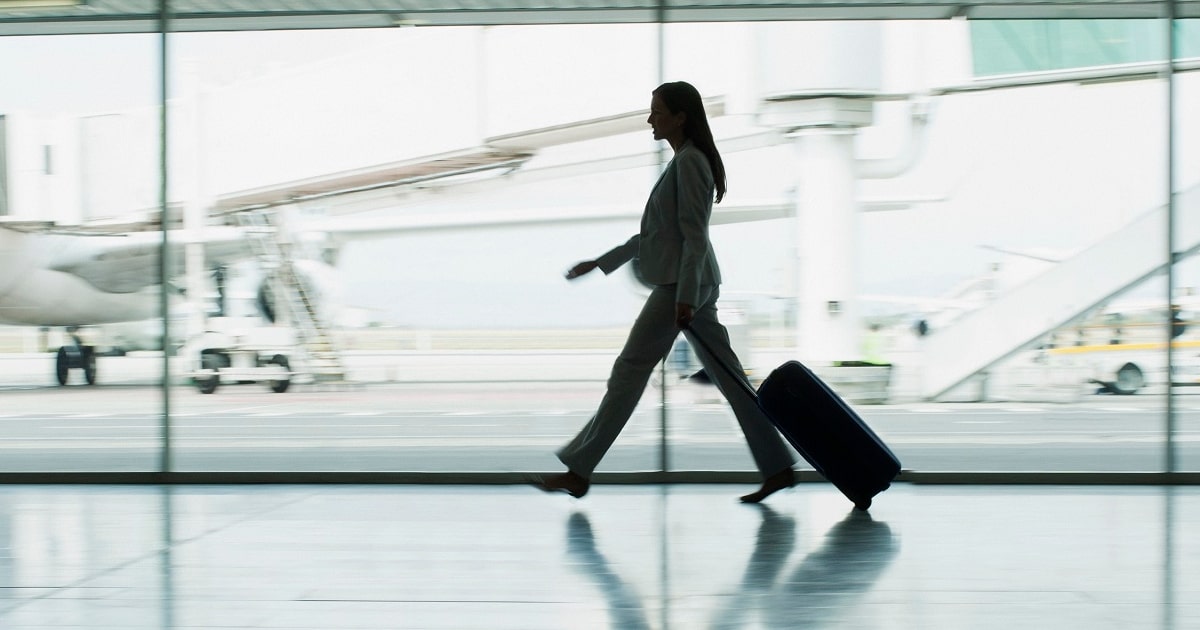November 17, 2022 Summary: COVID-19 pandemic shutdowns hit the travel industry extremely hard. While consumer travel is returning, business travel is still lagging behind pre-pandemic levels. What does the future look like for business travel in the post-COVID-19 world? Find out how work travel is steadily making a comeback.

Business travel impacts many sectors of the travel, tourism and hospitality industry. According to the
Global Business Travel Association, in 2019, $1.4 trillion was spent on business travel. These travelers made up 12% of total flyers and were responsible for
55-75% of total profits for the airline industry and 70% of total revenue for high-end hotel chains.
Impact of COVID-19 on Business Travel
The COVID-19 pandemic brought dramatic changes to the travel industry. Except for essential trips, business travel came to a standstill from April 2020 through the first half of 2021. Leisure and tourism travel has rebounded from the COVID-19 shutdowns, causing a
huge rise in demand for domestic and international travel. But, the business travel industry hasn’t fully recovered.
Deloitte found that spending for business travel remains at 50% of pre-pandemic amounts.
Due to COVID-19 shutdowns, many employees shifted from working in an office to working remotely at home (or in a hybrid setting), relying on technology to keep in touch with clients, vendors and prospective clients. This change in work style has challenged the business travel industry since companies can still rely on Zoom or Teams calls instead of in-person meetings.
Plus, some people are just not as ready to travel for business as they were just a few years ago.
47% of consumers are as likely or more likely to travel for overnight business now compared to pre-pandemic levels. However, 60% are as likely or more likely to travel for overnight business when the pandemic ends.
COVID-19 Impact on Hospitality Industry
The
COVID-19 pandemic dramatically impacted the hospitality and travel industry, starting with complete shutdowns and adhering to COVID-19 safety measures. Now, the industry must adapt to its changing customer needs. Today, the hospitality industry is still reeling from
labor shortages impacting everything from housekeeping services to hotel restaurants. These shortages and the
interruption of traditional business models during the pandemic have opened hotels to new risks.
Business Travel Current Trends
The return of business travel is making a slow but growing return. In 2022,
Deloitte found that 68% of business leaders and travel managers expect to see business travel return to pre-pandemic levels in the next few years. The report also predicted that U.S. business travel spending is projected to reach 65-80% of the 2019 levels, depending on external factors of public health situations, quarantine requirements and the rollout of COVID-19 vaccines internationally. Smaller companies will resume business travel at a faster rate compared to larger corporations.
But, while business travel has increased in the past year, overall
spending for this sector might not fully recover until 2026 due to inflation, labor shortages and geopolitical issues. The Global Business Travel Association found that
business travel worldwide will rise nearly 34% in 2022, but still well short of the high of 2019. A
Morning Consult report found that two in five Americans say they never expect to travel for business again, and 55% of respondents in the UK and 59% in France say they won’t travel for work again.
The Changing Needs of Business Travel
Businesses are not completely stopping business travel but are being more selective in their employee trips. The end of 2021 and most of 2022 saw the return of in-person conventions and trade shows, leading to more business travel opportunities. However,
individual business trips are still limited due to some businesses’ continued COVID-19 restrictions.
While management understands the
importance of business travel to help with business development, sales, internal business planning, client management and training and development, they still would limit spending on business trips.
The
reasons why people are taking fewer business trips include the following:
- People have adjusted to Zoom or Teams meetings and hybrid work
- Corporations tightening their travel budgets due to high inflation and concerns about a recession
- Environmental concerns, such as reducing the carbon footprint of business travel
- Continued COVID-19 lockdowns, quarantine policies across the globe and the war in Ukraine
Future of Business Travel
The pandemic has proven that technology effectively keeps people in touch easily and with reduced costs. Workplace flexibility and fewer travel opportunities have become the norm causing the travel industry to adjust to this new business travel landscape. But, the travel industry hopes that within the next few years, companies will have settled into their post-pandemic work routines and realize the importance of face-to-face interactions with clients, vendors and co-workers.
Weekday hotel occupancy, usually business travelers, has grown steadily since the beginning of 2022, indicating
hope for continued growth in this sector. This is a positive step for the travel industry, but a complete recovery is still a few years down the road.

AmTrust Helps Our Hospitality Insureds
From employee or customer injuries to property or equipment damage, hospitality companies face many unique risks that can reduce productivity, employee satisfaction, customer service and, ultimately, the bottom line. AmTrust’s small business insurance solutions are specifically designed to meet the needs of
hospitality businesses. For more information about our
small business insurance solutions, please
contact us today.
This material is for informational purposes only and is not legal or business advice. Neither AmTrust Financial Services, Inc. nor any of its subsidiaries or affiliates represents or warrants that the information contained herein is appropriate or suitable for any specific business or legal purpose. Readers seeking resolution of specific questions should consult their business and/or legal advisors. Coverages may vary by location. Contact your local RSM for more information.